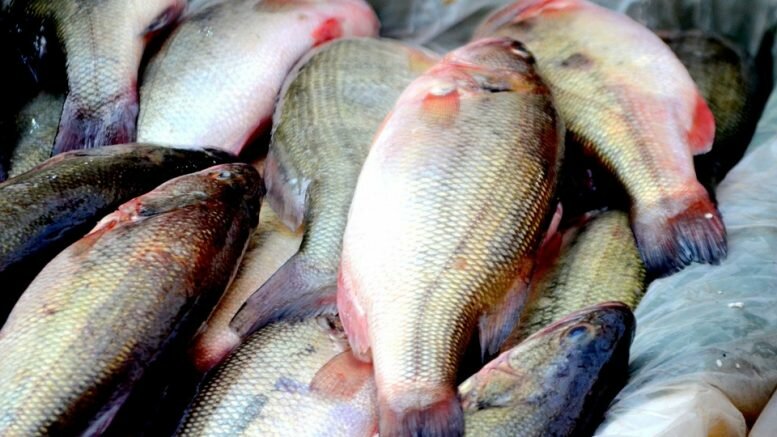Norway bereft of NOK 30 bn by exporting fish “au naturel”
Norway could have made NOK 30 bn more by processing fish before exporting it: “Good”, according to a Professor of Economics.
The fact that Norway loses jobs to Denmark and Poland is not necessarily a bad thing, Professor of Economics at the North Univerity, Frode Nilssen, believes.
Monday it became clear that Norway exports seafood for around NOK 99 billion. The Norwegian Seafood Council believes that the amount could have been NOK 30 billion more.
It was the financial newspaper, Dagens Næringsliv, which reported these figures first.
Recently, NRK reported that the fishing nation Norway sells 95 per cent of all fish it harvests from the ocean directly out of the country. At the same time, Norway import large quantities of cheap industrial fish that it uses in its own seafood products.
Fish out = goodwill in
The fish that is exported unprocessed out of the country, are processed in countries such as Denmark, Poland, Germany and Sweden instead of back home in Norway.
This export makes for almost 26,000 workplaces in the EU. These are jobs that in theory could have been in Norway. Professor Frode Nilssen does not think that Norway ought to wish to have these returned.
“Norway is one of the world’s richest countries, with low unemployment. Then it is not such a bad solution that other nations that have a larger population density and high unemployment rates are granted the job of processing the seafood,” Nilssen explains and adds:
“We share a little of the natural resources that Norway is fortunate to have at its disposal. These jobs are important both for Norway and the EU. It improves the mood and ensures good access to the European market.”
Against protectionism
Being benevolent towards the EU may have proven to be a good idea. Of the 99 billion Norway receives from seafood exports, 70 per cent come from EU countries.
Nilssen believes that such labour sharing is lucrative for several reasons:
“To say that we are bereft of values is not quite correct, as we have to pay considerably higher tariffs for processed than for raw fish.”
Today’s tariffs for the EU are two per cent for round fish and fillet, as opposed to 20 per cent for processed fish. Unprocessed fish and seafood are also what customers around the world prefer.
“They have their own taste preferences and traditions for how the fish should taste. That varies quite a lot from one area to the other,” the Economist explains.
Rather create alternative workplaces
The economics professor believes Norway has a big potential to develop seafood exports even further:
“Many have talked about the fact that it is the ocean that will save us and secure prosperity and workplaces after the oil runs out.”
But instead of bringing jobs back home, Nilsen opinionates that it will be more relevant to create additional jobs in Norway.
“Norway has enormous production areas that can be utilised much better than today. We can imagine more farming and better and different use of raw materials or residual raw materials. The sky is the limit,” Nilssen concludes.
This article is an excerpt of an article from NRK Nordland. Translated and edited by Norway Today.
© NRK / #Norway Today





